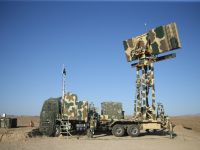Diplomatic efforts continued Tuesday to halt the violence in the Palestinian territories amid conflicting signals from Israel on the length of a new ultimatum to Palestinian leader Yasser Arafat.
Israeli Prime Minister, Ehud Barak, gave the Palestinians "three or four days" to end the violence in the West Bank and Gaza Strip.
He also warned that if Palestinian leader Yasser Arafat did not rein in the demonstrators who have battled the Israeli army since September 28, he would be considered to have abandoned the peace negotiations.
The violence in the Palestinian territories, and protests by Israeli Arabs in Israel itself, has cost almost 100 lives, the vast majority Palestinian, since it was sparked by a visit of Israeli hawk Ariel Sharon to a fiercely-disputed religious site in Jerusalem.
An earlier two-day ultimatum expired late Monday, and the West Bank and Gaza Strip, where the level of unrest has dropped drastically in the last two days, were quiet Tuesday, as United Nations Secretary General Kofi Annan held talks with Arafat for the second day.
The two men held two hours of talks in what Arafat described as "a very important meeting" on Monday night, shortly after Annan's arrival in the region on a mission to prevent the peace process disintegrating.
But officials said the army was under instructions to respond with force to any new upsurge of violence, with the radio saying it would resort to tanks and helicopter gunships if necessary.
Annan saw Arafat in Gaza City after arriving in Tel Aviv late Monday on a mission aimed at preventing a conflagration in the Middle East, and also had talks with Israel's acting foreign minister, Shlomo Ben Ami, but he has yet to meet Barak.
Annan was also expected to go to Lebanon and to Syria, which controls politics in Beirut and backs the Shiite Lebanese Hizbollah group, whose capture of three Israeli soldiers on Saturday sharply escalated tension on Israel's northern border.
Javier Solana, the European Union high representative for foreign and security policy, was also due in Damascus Tuesday.
Russian Foreign Minister, Igor Ivanov, also arrived in Israel late Monday after visits to Syria and Lebanon, saying he had "tangible proposals" for restoring peace.
Barak told ABC, "I think the government did the right thing by allowing these extra few days to make clear that whatever happens in the future we'll not feel responsible for not being able to seize an opportunity to save (the peace process)."
He added, "The truth ... is that if Arafat cannot achieve an end to this violence when it is clear to us that by a single order to his people he can achieve it; if he's unable or unready to do it, it means to us that he deliberately decided to abandon the peace negotiations."
Barak insisted that peace was the ultimate goal.
"If we fail," he warned, "we are going to be led by events into much tougher moments than each of us can now imagine.
"And once again it will never be a mistake to await another few days before we are entering this kind of fate or destiny."
Barak, who said hopes for peace in the Middle East were fading "at least for the near future," said he had done more than any of his predecessors "in contemplating ideas that might lead to a solution.
"But with the same determination we will struggle for the right of our people to live in this tough neighborhood forever if we find no right partner (for peace)," he warned.
Barak said he had spoken with US President Bill Clinton a "few times" in the past two days and was ready to call him again once his interview was over.
But prospects of a new summit with Arafat and Clinton appear remote. While Barak told his cabinet he did not rule it out, the White House said the necessary conditions were not yet in place.
Clinton had spoken with Barak, Arafat and Egypt's President, Hosni Mubarak, by telephone in an attempt to broker an emergency summit, a White House official said.
"No one has said no (but) we have not had a clear indication" of the conditions necessary to organize such a summit, said the official, who spoke on condition of anonymity.
"To organize a summit you need some reasonable prospects of being productive," the official said.
France, which holds the rotating EU presidency, last week hosted a failed attempt by the United States to revive talks between Israeli Prime Minister Ehud Barak and Palestinian leader Yasser Arafat.
In an especially frank statement, the EU foreign ministers called upon Barak "to address the Palestinian people," upon Arafat to do likewise with Israelis, and upon both men "to unite their efforts."
"In this critical period, no effort must be spared to prevent fear, hatred and violence from gaining the upper hand, so that the dialogue for peace may resume as soon as possible," they said.
Speaking about Solana's mission, French Foreign Minister, Hubert Vedrine, said there was scope for him to discuss Sunday's kidnapping of three Israeli soldiers with Syrian and Lebanese officials.
"But the mission is bigger than that, and will bring a useful contribution by Europe to the discussions that are under way," Vedrine said.
Solana is to report back to EU leaders when they gather Friday for their autumn summit in the French seaside resort of Biarritz.
While the European Union is not formally coordinating its efforts with the United States, British Foreign Secretary, Robin Cook, said there was "a total overlap in our objectives."
Speaking earlier Monday, Solana said: "Every member of the international community has a responsibility now of trying to help lower the temperature and to try to see if there is a possibility of returning to the negotiating table." - JERUSALEM (AFP)
© 2000 Al Bawaba (www.albawaba.com)







